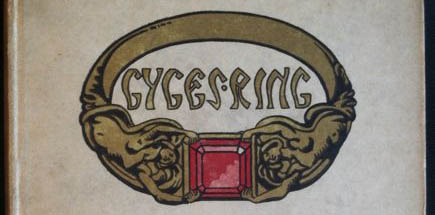
I am convinced of the need for more public philosophy and feel compelled to contribute as best I can. I’d like to reach more people with the messages that I think need to be said and heard. Apparently you can reach more folks and more will follow you if you first pay a service to generate 10,000 fake followers for you over a few weeks’ time. Why? People with lots of followers are more likely to get followed in return. They’re also more likely to be proposed to other people as good candidates for following, speeding the cycle. What’s the catch? It goes against Twitter policy to pay for fake activity, including following or posting.
I’ve been told that Twitter does not police that, however. They don’t want spammers who sell stuff by automatic “fake” activity of messaging, and they clamp down on that. If that’s true — if they don’t police fake follower-buying — then it’s ok to do, right?
Imagine that a stretch of highway is to be policed by an office that is underfunded. It can only police that stretch of highway from January to September. Does that mean that for three months it’s ok to drive 60 miles over the speed limit? There’s no policing, so what’s wrong with driving over 100 mph? My point is that the fact that something isn’t policed doesn’t mean that it’s thereby ok to do. Also, Plato’s Socrates would say that the policing factor only gets at the extrinsic value of just action, not the intrinsic.
Extrinsic consequences can tell you something, though, or so it seems, according to the modern-day idea of a newspaper test. The question is whether it would still be ok to do what you’re planning if it were to be featured on the front page of the newspaper tomorrow. That is an extrinsic test. It asks what would happen as a consequence if someone were to find you out. Your reputation could be damaged. You could go to jail. Other bad consequences could ensue from doing the wrong thing. BUT, what if you knew it couldn’t end up in the newspaper tomorrow?

Anyway, the explorer, now a ring richer from taking from a corpse, finds out accidentally that when he turns the ring around, he becomes invisible and can do whatever he wants. He can get away with anything. In that case, the Devil’s advocates in Plato’s story tell Socrates that the invisible man would do whatever he wanted, whether just or not, if he could certainly get away with it.

The newspaper test today is partly about the threat that you will get caught, but it can also help to convince us about what is right and wrong even if you got away with it. If what you are planning to do would look terrible when detailed for the public in the newspaper tomorrow, that’s an indication that it’s the wrong thing to do. There are some unique exceptions to that, which I think deserve their own post, but for the most part, I think that the test is helpful. If you are looking to benefit personally and in a way that is unjust, don’t do it! If to do what is just comes with a cost to reputation, that’s a different story.
Sometimes people’s right to privacy means you can’t disclose information that would explain your actions or decisions. Or, revealing information might put one’s troops in danger. In those cases, you take the insults to your character because it’s the right thing to do, when necessary for justice.
What’s wrong with the Twitter story? At least three things, if not more: 1) If you are buying Twitter followers, you are violating Twitter’s policy, going against the stated norms of a social medium. 2) You are creating a deception, making yourself look like you have a reputation that you lack. 3) As there are legitimate and non-deceptive ways of growing your following quickly, through honest and open paid promotions, you are depriving Twitter of one of the few things that earn the company money.
Buying Twitter followers is cheap, it turns out. $70 can buy you 10,000 “followers.” Why not do it? One answer is the newspaper test. What would it look like if people found out that’s what you did? What if it were on the front page?
Newt Gingrich knows the answer to that question. It’s not good.
In this case, I think we can safely say that if it would look terrible to do something that is a deception, it’s probably intrinsically a bad thing to do also — whether or not you can get away with it.
Oh, and by the way, follow me on Twitter and “like” my Facebook author page! 😉






 About Me
About Me